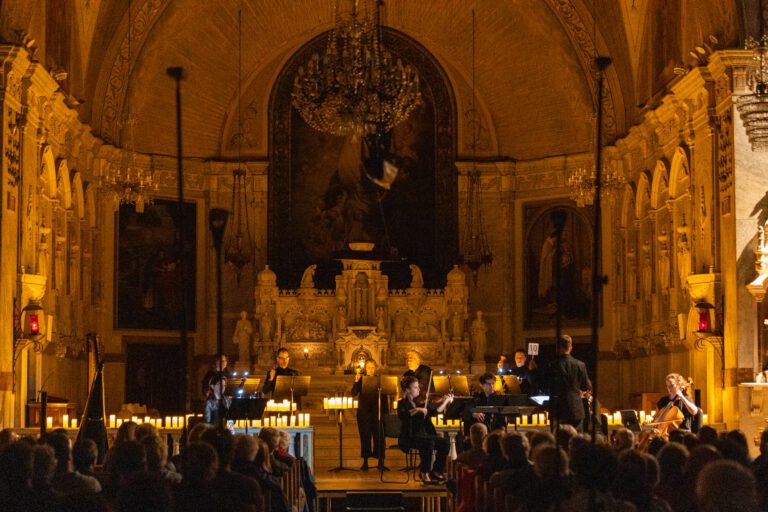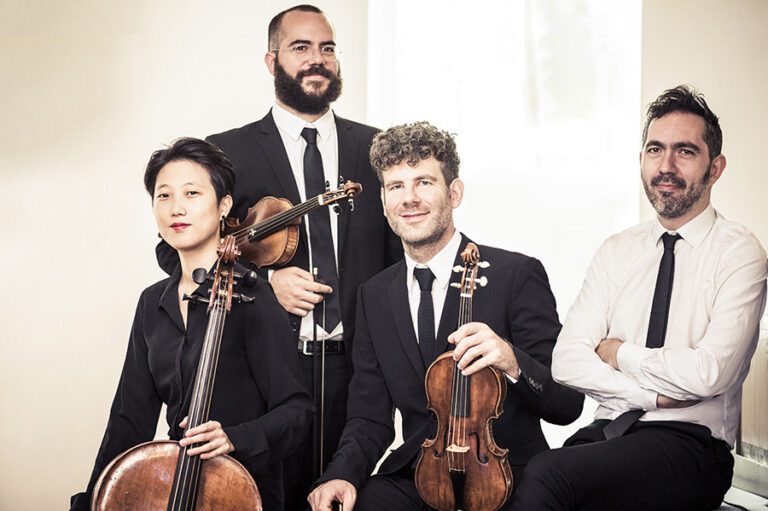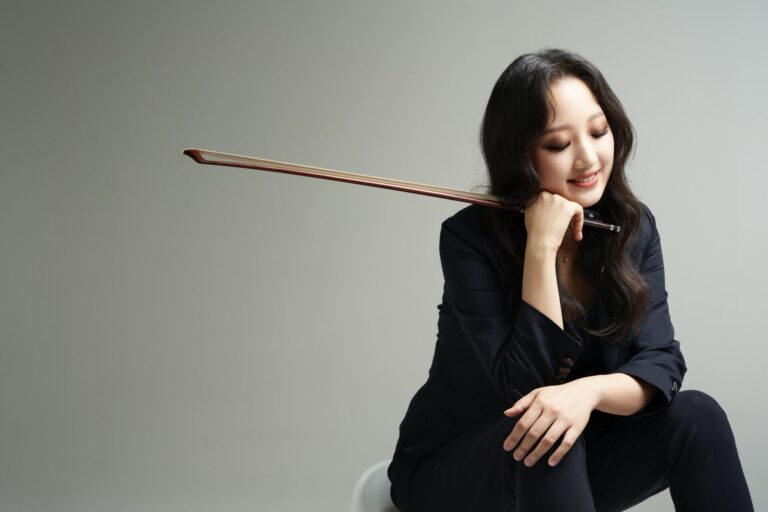No, I’m not talking about a real Candlelight concert. It’s the final concert of the 24-25 season of the Société de musique contemporaine du Québec (SMCQ), In Memorian Jocelyn Morlock for which I’m about to write this. One of the finest concerts of the season, in my humble opinion. Musically enchanting, spiritually poignant. So why the reference to the hyper-popular concerts played by candlelight? Simply because, yesterday too, the sober but effective staging also used lots of candles to light the stage, and it was reminiscent of that kind of atmosphere. That said, aesthetically, artistically and emotionally speaking, this SMCQ concert surpassed by a factor of 1000 anything that has ever been performed in the (real) Candlelight series (I’ve seen a few).
As the title suggests, In Memoriam Jocelyn Morlock was a tribute to the Vancouver composer who died suddenly, and far too young, in 2023. This woman’s musical aesthetic has conquered a large part of the contemporary musical world and will undoubtedly continue to influence many other artists in the years to come. Regularly consonant without shying away from salient colours that skilfully titillate the ears, her music is extraordinarily pleasant to listen to for both newcomers and those more seasoned in the modern idiom. In other words, Morlock’s music is as much a pleasure to listen to as it is intellectually rewarding.
Memoriam Jocelyn Morlock par Frederic CardinThe quality and intelligence of yesterday’s programme are to be commended: around an hour and a half of music paying tribute to Morlock, whether written by her or by other composers. What’s more, a crescendo/decrescendo of intensity and sound volume that took us from a very touching soliloquy for solo oboe newly written by Samy Moussa (Jocelyn Morlock in memoriam – it’s always a pleasure to see Samy back home now that he’s settled in Berlin), to pieces for flute, viola and harp by Toronto’s Luis Ramirez (Volador) and Morlock (The uses of solitude), an arrangement for string quartet of Tanya Tagag’s Sivunittinni (the peak of the evening’s sonic intensity, a piece remarkable for the accuracy of its evocations of Inuit throat singing), Rita Ueda’s transcendent You Are a Vessel for Joy, a new work for English horn, string quartet and choir, then Morlock’s very poignant Exaudi, for cello and choir (a masterly performance by Chloé Dominguez!), ending with a reprise of Moussa’s oboe soliloquy in the darkness, like a symbol of the celebrated artist’s final departure (Mélanie Harel on oboe, who imbued her playing with immense tenderness).
READ MY COLLEAGUE ALAIN BRUNET’S INTERVIEW WITH SIMON BERTRAND, OF THE SMCQ, ABOUT THIS CONCERT
What came out of the concert was a very strong sense of spiritual and humanist communion, which is beneficial in these times of social and political stress.
All the musicians are to be congratulated and commended on this unforgettable artistic performance: Voces boreales conducted by Andrew Gray, the Trio Kalysta (Lara Deutsch on flute, Emily Belvedere on harp Marina Thibeault on viola, a trio combination whose sound velvet and infinite capacity for colour I adore), string players Robert Margaryan and Daphnée Sincennes Richard on violins, Marie-Louise Ouellet on viola and Chloé Dominguez on cello, Mélanie Harel on oboe and English horn (excellent).
In a much more ideal world, a small organisation like the SMCQ would have had the means to film and record this exceptional performance in high definition, and then broadcast it as widely as possible. Unfortunately, that’s not our world, and we’ll have to resign ourselves to the fact that only a few hundred people (who were present and very attentive in the Notre-Dame-de-Bon-Secours chapel) will be left with a memorable impression of the event. Unless we manage to take this concept elsewhere too. That would be great. If it happens near you, don’t miss your chance.
Yes, one of the best concerts of the year.


